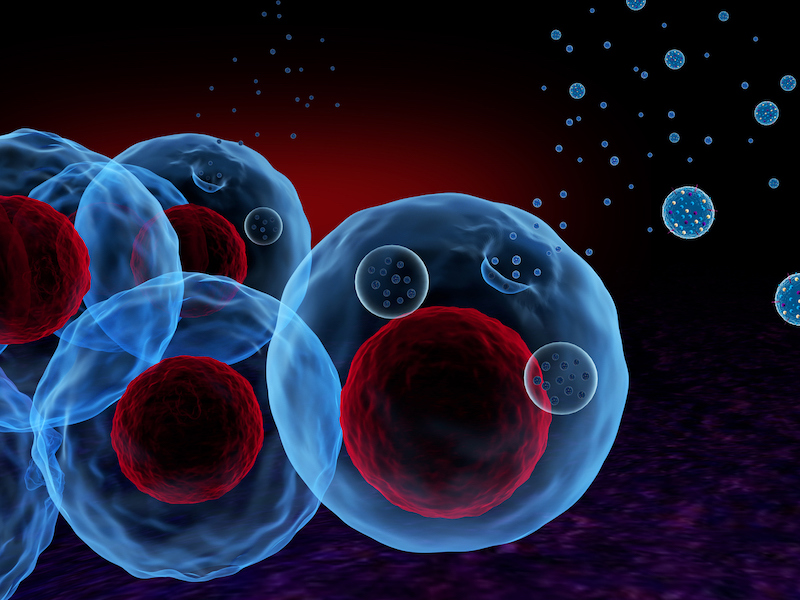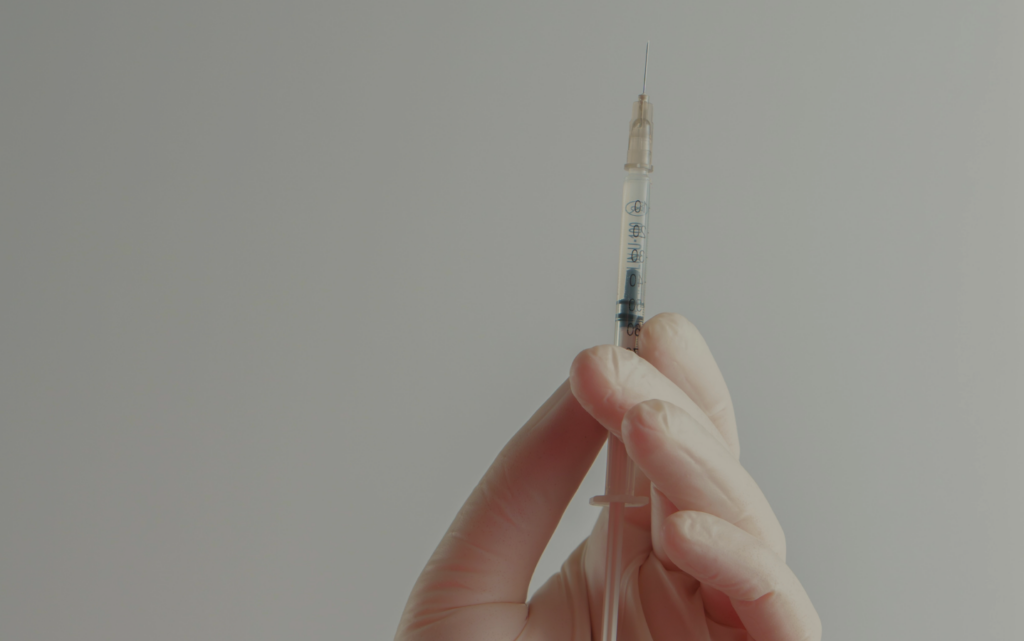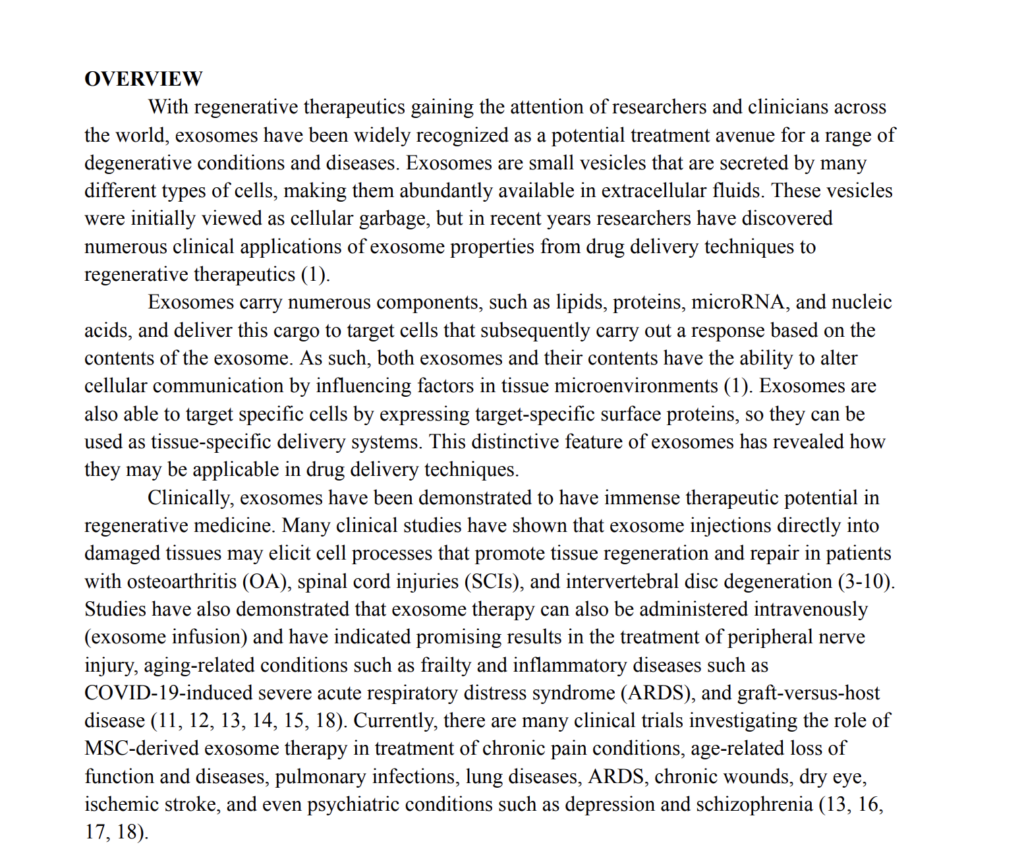1. Exosomes are administered intravenously (no sedation necessary).
2. The IV process typically lasts 60 minutes.
Exosome Therapy
Exosome therapy is a research treatment studied for its potential to relieve pain and promote tissue regeneration.
What Are Exosomes?
Exosome therapy is a research treatment, currently studied for its potential to heal degenerative conditions.
Exosomes are small messenger particles that have been naturally released by cells. Bound by membrane, they carry essential cargo like protein, DNA, messenger-RNA, micro-RNA, and signaling cytokines to other cells throughout the body, promoting a specific cellular response based on the cargo. Essentially, exosomes facilitate–and alter– communication between cells.
Ready to learn more? Review our IV Exosomes clinical overview here.
May promote tissue regeneration.
May reduce inflammation.
May prevent tissue degeneration.
Why Are We Researching Exosomes?
Existing research indicates that exosomes have the potential to promote healing and regeneration for a wide range of conditions, including musculoskeletal conditions, chronic disorders, and perhaps, even, Long-COVID. We believe exosome research will play a pivotal role in the future of regenerative medicine.
Potential Applications of Therapeutic Exosomes
Research indicates the vast potential of exosomes to stimulate healing and regeneration after injury or chronic disease diagnosis. Conditions that may benefit from exosome research include:
- Spinal cord injury
- Peripheral nerve injury
- Intervertebral disc degeneration
- Long Covid
- Osteoarthritis
- Complex Regional Pain Syndrome
- Age-related diseases
- Inflammatory diseases
- Graft-versus-host disease

What Are the Potential Benefits of Future Exosome Therapies?
By modulating cell-to-cell communication and promoting tissue repair, Exosome therapy can enhance the healing process and improve outcomes for a variety of conditions.
Exosomes are generally well tolerated, and numerous completed and ongoing clinical trials indicate the safety of Exosome injections.

Learn more about our exosome research.
How Does Exosome Therapy Work?
The exosomes used are derived from mesynchymal stem cells (MSCs) and are administered via IV drip or injection. Once injected or intravenously infused, the exosomes travel to target cells, which respond to the cargo carried by the exosomes. Cellular responses may include tissue regeneration or repair, or immune system modulation.
Exosome Infusions
Exosome Injections
1. A local anesthetic is applied.
2. Exosomes are injected at the site of injury.
3. The injection process typically takes 15-20 minutes.

